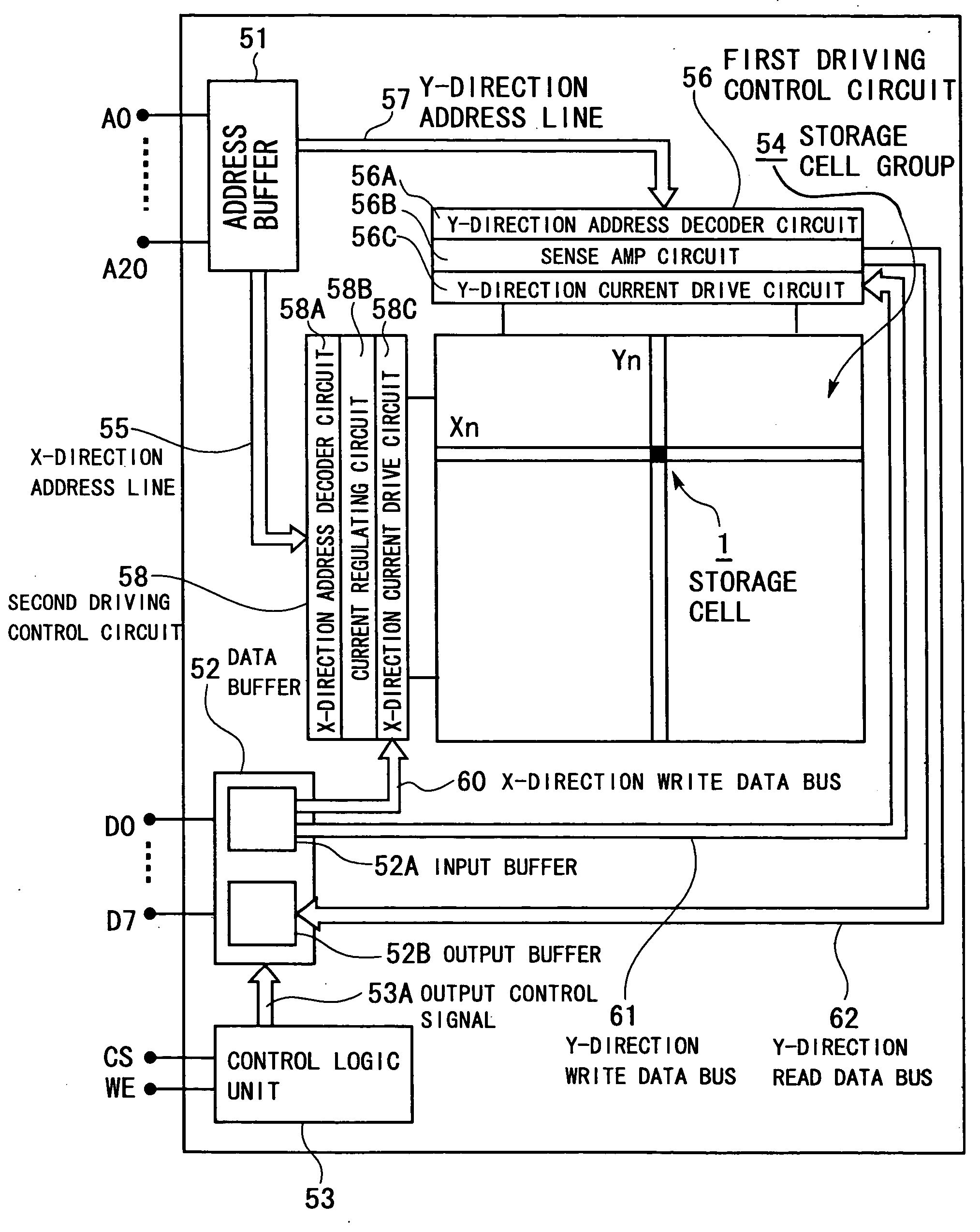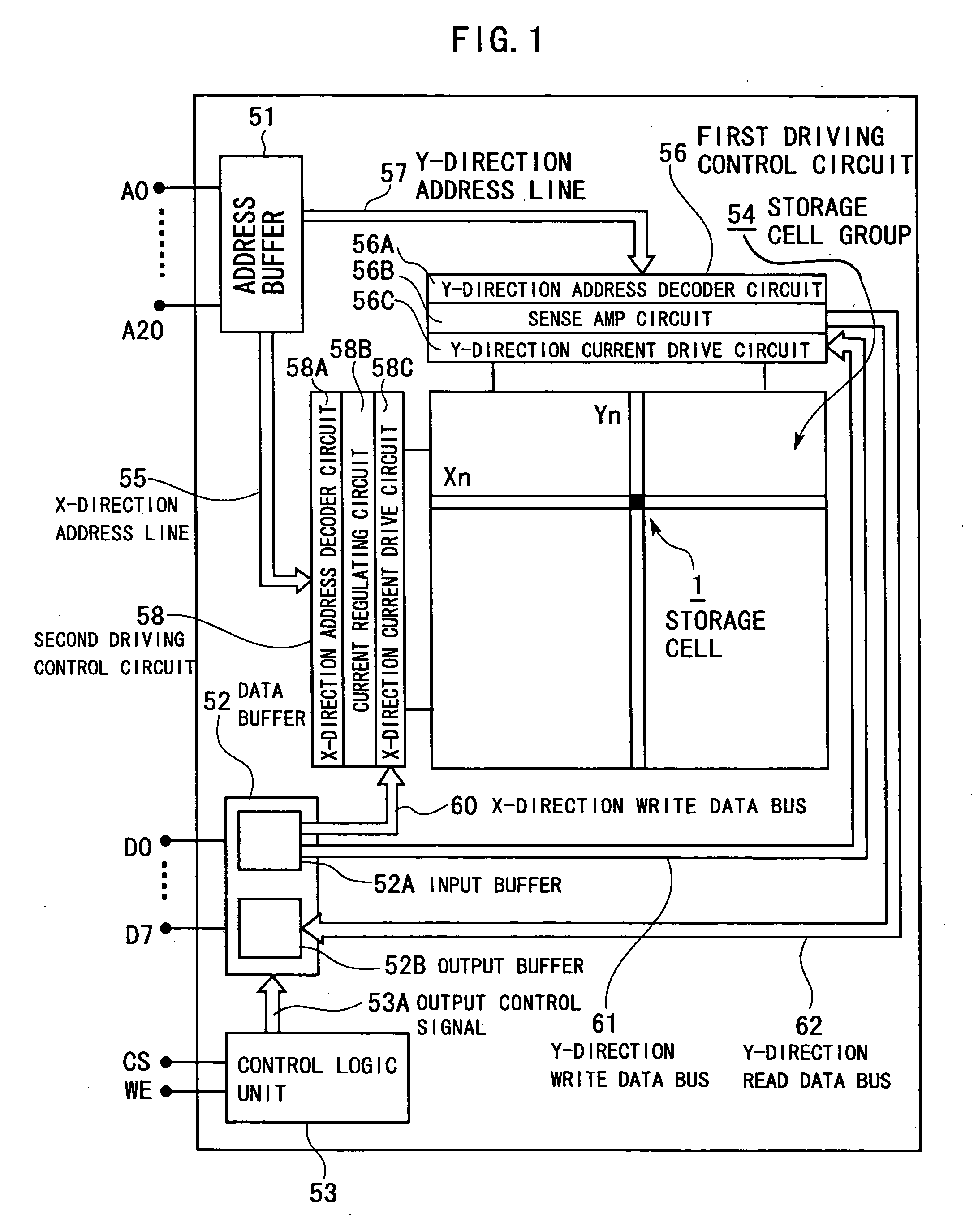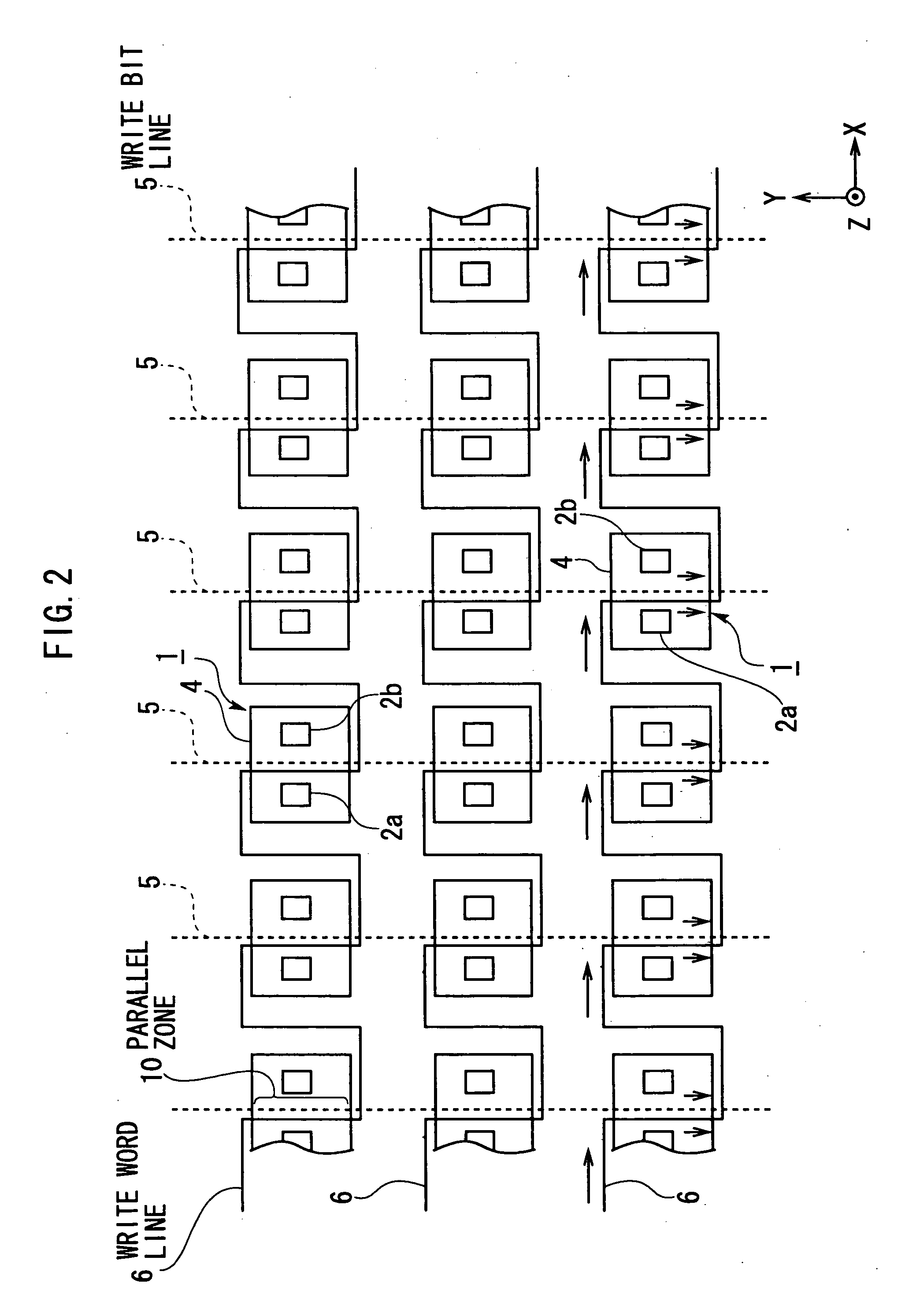Magnetic storage cell and magnetic memory device using same
a magnetic memory and storage cell technology, applied in semiconductor devices, digital storage, instruments, etc., can solve the problems of large loss of current magnetic field, inability to efficiently carry out the magnetization reversal of each free layer, and inability to form a magnetic path efficiently guiding the current magnetic field, etc., to achieve efficient magnetization reversal, reduce current magnetic field loss, and large storage capacity
- Summary
- Abstract
- Description
- Claims
- Application Information
AI Technical Summary
Benefits of technology
Problems solved by technology
Method used
Image
Examples
first embodiment
[0104] First, a magnetic memory device according to the present invention will be described with reference FIG. 1 and the like.
[0105]FIG. 1 is a block diagram schematically illustrating the whole configuration of a magnetic memory device according to a first embodiment of the present invention. The magnetic memory device according to the first embodiment comprises components illustrated in FIG. 1 mounted on a semiconductor chip to serve as MRAM.
[0106] The magnetic memory device according to the first embodiment comprises an address buffer 51, a data buffer 52, a control logic unit 53, a storage cell group 54, a first driving control circuit 56, a second driving control circuit 58, external address input terminals A0-A20, and external data terminals D0-D7.
[0107] The storage cell group 54 has a matrix structure in which a multiplicity of storage cells 1, each having two TMR elements (tunneling magneto-resistive elements), arranged in a word line direction (X-direction) and a bit lin...
second embodiment
[0184] Next, a magnetic memory device according to the present invention will be described with reference FIGS. 37A and 37B.
[0185]FIGS. 37A and 37B are general cross-sectional views schematically illustrating a storage cell 401 of a magnetic memory device according to a second embodiment of the present invention, and correspond to FIGS. 4A and 4B. In FIGS. 37A and 37B, components identical to or corresponding to those in FIGS. 4A and 4B are designated by the same reference numerals, and repetitive description thereon is omitted. This applies to FIGS. 38 to 41, later described.
[0186] The magnetic memory device according to the second embodiment differs from the magnetic memory device according to the first embodiment only in that the storage cell 401 illustrated in FIGS. 37A and 37B is used instead of the storage cell 1 illustrated in FIGS. 4A and 4B.
[0187] The storage cell 401 differs from the storage cell 1 only in that the magnetic layers 21a, 21b are removed from the laminated ...
third embodiment
[0190] Next, a magnetic memory device according to the present invention will be described with reference FIGS. 38A and 38B.
[0191]FIGS. 38A and 38B are general cross-sectional views schematically illustrating a storage cell 411 of a magnetic memory device according to a third embodiment of the present invention, and correspond to FIGS. 4A and 4B.
[0192] The magnetic memory device according to the third embodiment differs from the magnetic memory device according to the first embodiment only in that the storage cell 411 illustrated in FIGS. 38A and 38B is used instead of the storage cell 1 illustrated in FIGS. 4A and 4B.
[0193] The storage cell 411 differs from the storage cell 1 only in that a bilayer film composed of a lower non-magnetic conductive layer 412b and an upper ferromagnetic layer 413b are added between the ferromagnetic layer 25b and antiferromagnetic layer 26b in the TMR element 2b. The non-magnetic conductive layer 412b can be made of a similar material to that of the...
PUM
 Login to View More
Login to View More Abstract
Description
Claims
Application Information
 Login to View More
Login to View More - R&D
- Intellectual Property
- Life Sciences
- Materials
- Tech Scout
- Unparalleled Data Quality
- Higher Quality Content
- 60% Fewer Hallucinations
Browse by: Latest US Patents, China's latest patents, Technical Efficacy Thesaurus, Application Domain, Technology Topic, Popular Technical Reports.
© 2025 PatSnap. All rights reserved.Legal|Privacy policy|Modern Slavery Act Transparency Statement|Sitemap|About US| Contact US: help@patsnap.com



